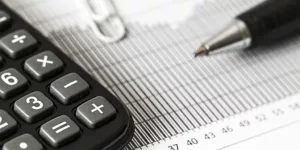Whether you’re a business owner, have some side hustles, or simply want to maximize your return, use your tax experience this year as an impetus to be better prepared next year.
You don’t want to wait until it’s crunch time before realizing you could have made it easier on yourself with a few simple steps throughout the year.
Here are some ways to plan for next year’s tax season to take some of the burden off your shoulders and perhaps do away with the days of sifting through the multi-page workbooks accompanied by drawers full of receipts:
Use Technology to Your Advantage
Advanced tax technology allows you to file returns and research new tax rules directly from your smartphone. Apps and trackers streamline the process of gathering data and will help you eliminate some of the time-consuming parts of the tax filing process.
The IRS2GO app has many features to take advantage of. You can check your refund status, watch YouTube videos that offer tax tips, and view a list of locations where you can get in-person assistance. It’s free, so check it out.
Other popular and free tax advising apps include MyTaxRefund, Ask a Tax Preparer, TurboTax and H&R Block, which can help you take out some of the guesswork by researching some of the most common tax questions. Some of the apps do charge fees to submit your actual forms. However, it costs a lot less than having a professional do it for you. Just take the time to navigate through the apps to make sure they are going to work for you.
Also, you may not know this, but if you make less than $66,000 a year, you can actually go to IRS.gov and look for a free filing tool. There are 20-plus software providers that will do your taxes for free.
Do You Need to Review Your Withholdings?
Make sure you’re letting your employer know at the beginning of the year what withholding amount is going to work for you. You wouldn’t want to owe at the end of the year if you under-withheld taxes. Or if you received a large refund, you will want to increase your exemptions for the following year. Here is the IRS Withholding Calculator.
If you work part time or started a new job in the middle of the year, the withholding may have been based on an anticipated full-time salary, and you’ve been paying too much.
“Look at the balance due for taxes this year and adjust your withholding. If you overpaid, why wait until next year to get that refund,” according to an article on USNews “Adjust it to get a little bit more in your paycheck through the year.”
If you’re a small business owner or self-employed, like an Etsy seller, you’ll file an annual return based on estimated taxes on a quarterly basis. Quarterly taxes are based on Social Security and Medicare, plus income tax on your profits. Paying quarterly allows you to avoid cash flow problems when tax time comes around. IRS.gov makes it fairly easy with their 1040-ES form as long as you have your documents in order and are planning for your estimated taxes.
For example, if your annual revenue from Etsy is $50,000 and you have eligible business deductions of $30,000, your taxable income would be $20,000.
Donate to Charity
You’ve probably been sitting at the tax preparers office when they ask you whether you made any charitable donations throughout the year. You scratch your head and realize that you did not — or you did but don’t have the receipts.
When it comes to itemizing deductions, this is an often overlooked aspect. Make a specific plan to donate whether it’s clothes to a thrift store or to a nonprofit or cause you support. Keep track of where and when you want to give throughout the year, and keep the receipts so you know exactly how much you’ve donated.
Some employers will give each of their employees X amount of dollars to donate to a qualified charity of their choice. This is tax deductible. Don’t forget to itemize it.
The IRS only requires receipts for charitable contributions of $250 or more, but it’s still a good idea to keep receipts for any donation.
You don’t want to be left scrambling at the end of next tax season, especially with new tax laws going into effect in 2018, so having a clear picture of your finances — and potential gains and losses — throughout the year will help you avoid surprises. Whether you’re having a tax preparer do them for you or you’re doing your taxes yourself, organized records will reduce the time you have to spend gathering information at the last minute.








